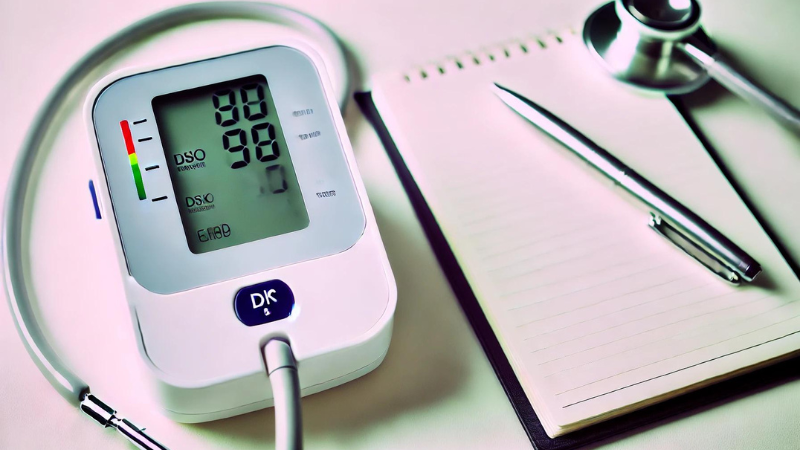Understanding How Blood Pressure Management Can Protect Your Heart
Oct 01, 2024
Hypertension and Atrial Fibrillation: Why Controlling Your Blood Pressure Could Save Your Heart
Hypertension, commonly known as high blood pressure, is a major risk factor for various cardiovascular conditions, including atrial fibrillation (AFib). Understanding the connection between these two conditions is crucial for maintaining heart health. This article will explore how effective blood pressure management can significantly reduce the risk of developing atrial fibrillation and its potential complications.
Understanding Hypertension and Atrial Fibrillation
Hypertension occurs when the blood pressure in your arteries is consistently too high, placing excess strain on your heart and blood vessels. This condition can lead to serious health issues, including heart disease, stroke, and kidney problems. Atrial fibrillation, on the other hand, is an irregular heartbeat that can lead to blood clots, stroke, and heart failure.
Studies indicate that individuals with hypertension are more likely to develop AFib, as high blood pressure can cause structural changes in the heart, leading to increased stiffness and changes in the heart's electrical pathways.
The Importance of Blood Pressure Control
Controlling your blood pressure is vital for several reasons:
-
Reduces the Risk of Atrial Fibrillation: By managing your blood pressure, you can lower the likelihood of developing AFib. A study found that effective hypertension treatment can reduce the risk of AFib by up to 50%.
-
Prevents Complications: AFib can lead to serious complications such as stroke and heart failure. By keeping your blood pressure in check, you mitigate these risks significantly.
-
Improves Overall Heart Health: Managing hypertension contributes to better overall cardiovascular health, reducing the burden on your heart and lowering the chances of other heart-related diseases.
Lifestyle Changes to Control Blood Pressure
Making healthy lifestyle choices is a powerful way to manage hypertension and reduce the risk of AFib. Here are some effective strategies:
-
Diet: Adopt a heart-healthy diet rich in fruits, vegetables, whole grains, and lean proteins. The DASH diet (Dietary Approaches to Stop Hypertension) is particularly effective in reducing blood pressure.
-
Physical Activity: Regular exercise strengthens the heart and helps lower blood pressure. Aim for at least 150 minutes of moderate-intensity aerobic activity each week.
-
Weight Management: Maintaining a healthy weight can significantly reduce blood pressure and decrease the risk of AFib .
Medical Management of Hypertension
In some cases, lifestyle changes alone may not be sufficient to control high blood pressure. Medications may be necessary, and various options are available:
-
Diuretics: Help eliminate excess fluid and salt from the body, lowering blood pressure.
-
ACE Inhibitors: Relax blood vessels, making it easier for the heart to pump blood.
It's crucial to work closely with your healthcare provider to determine the most appropriate treatment plan for your needs.
Conclusion
Controlling your blood pressure is a key factor in preventing atrial fibrillation and ensuring overall heart health. By making lifestyle changes, seeking medical treatment when necessary, and monitoring your blood pressure regularly, you can significantly reduce your risk of developing this serious condition. Regular check-ups and consultations with healthcare professionals can provide valuable insights into your heart health and help you stay on track with your blood pressure management. Remember, taking proactive steps today can lead to a healthier heart tomorrow.
For more information on heart health and managing hypertension, visit Steris Online Cardiology.
Recent Post

Why Doctors Prescribe Pregabalin with Epalrestat and Methylcobalamin for Nerve Pain Steris Healthcare.

Steris Healthcare Pvt Ltd Radiates Excellence at the Dec 2025 ZEE Media Global Innovation & Leadership Summit, London!

Terbinafine 250mg & Itraconazole 100mg: The Ultimate Solution for Stubborn Fungal Infections Steris Healthcare.

Understanding Nebivolol 5mg & S-Amlodipine 2.5mg: A Powerful Combo for Heart Health

FLAVOSHIELD 500: The Complete Guide to Micronized Purified Flavonoid Fraction for Venous Health Steris Healthcare.

Unlocking Relief: How Egolix 150mg Treats Endometriosis Pain Steris Healthcare.

Isosorbide Mononitrate 60 mg in Long-Term Angina Management: Role and Best Practices Steris Healthcare.

How Ribavirin Capsules Help in Treating Chronic Viral Infections Steris Healthcare.

Mefenamic Acid With Paracetamol Suspension Effective Relief for Pain and Fever in Kids Steris Healthcare.

Levosalbutamol and Ipratropium Bromide Respirator Solution Quick Relief for Wheezing & Tight Airways Steris Healthcare.

